Certificate of Translation Accuracy makes the difference between certified translation and regular translation. A certification statement of translation is most likely required when your documents are used for official purposes. In this article, we will explain what a certificate of translation accuracy is and when you may need one.
Certificate of Translation Accuracy is a signed statement of a translator or a translation agency affirming that the translation completely and accurately represents the original document. This certificate adds an important assurance layer to the translation before you proceed with subsequent procedures.
A statement of accuracy in translation may be required when you submit your documents to foreign government bodies, financial or educational institutions, etc.
For enterprises, in particular, a certificate of translation accuracy is crucial in proving that the documents are translated professionally and reliably. The trading activities between your company and overseas stakeholders therefore become more efficient and hassle-free.
There are several types of certification statements, and they are different in validity, price, and process. Knowing which type of certificate you need before ordering a certified translation service can save you lots of time and money.
Depending on the translation provider, the certificate of translation accuracy can be separated into three types as follows:
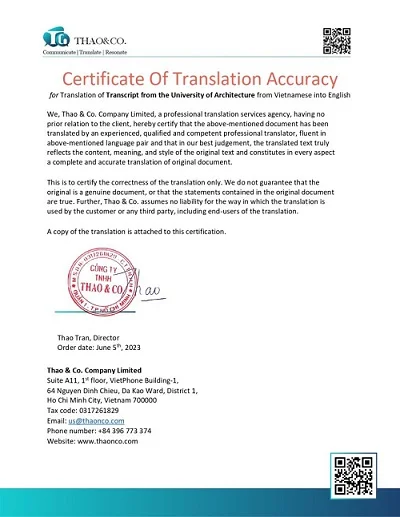
This is the most commonly required type of certified translation. The translation company will sign and put their seal on the Certificate of Translation Accuracy along with the final work. This certificate of translation accuracy is also a compulsory step before applying for notarization.
Choosing Thao & Co. certified translation services, you will be given a free signed statement on demand. If you need assistance with the procedure, we also offer our notarization and consular authentication as supporting services to save you time and effort. Let us know how we can help you on our Get A Quote page!
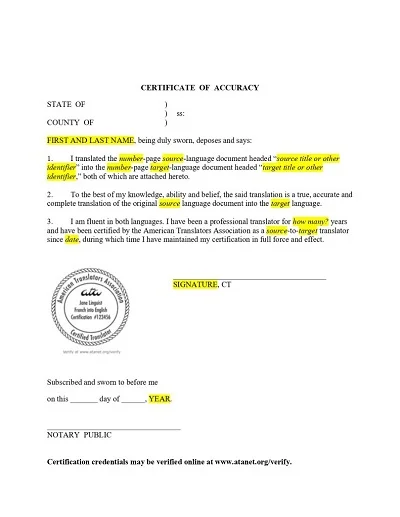
Only translators of professional associations such as ATA, STIBC, and ELIA can provide this type of certificate. Translations certified by a translator of professional associations are commonly used in European countries.
These translators have to comply with rigorous protocols, which are to make sure that there is no fraud. For example, you may have to send them the original copies of your documents for certified translations.
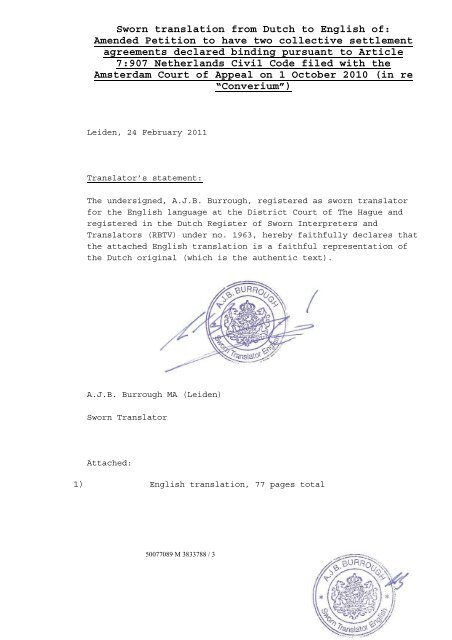
There are some countries such as France, Spain, Italy, and the Netherlands, where a translator has to take an oath before a court to become a sworn translator. If you work on administrative procedures in these countries, you may need to get certified translations performed by a locally-based sworn translator.
Upon request, Thao & Co. will work with an appropriate translator to acquire the exact certificate that you need. We make it easy for you to obtain different types of certified translations in one convenient process.
Certificate of Translation Accuracy is generally written in the target language of the translation and includes the following components:
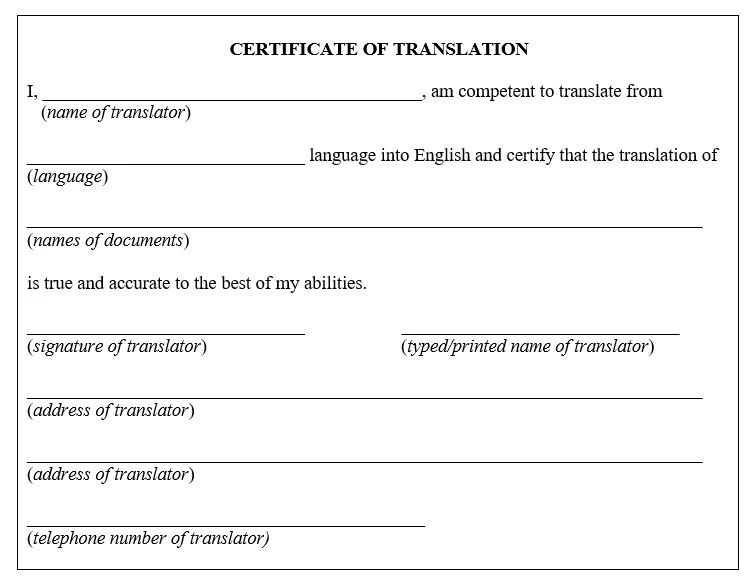
There is a variety of circumstances where you may need to get certified translation services. Most of these cases are related to legal purposes such as immigration applications, international joint ventures, import and export or financial activities, etc.
Certified translation is commonly required for official documents such as ID cards, justice checks, birth certificates, marriage certificates, academic transcripts, supporting documents for visa applications, etc. For international cooperations, a certificate of translation accuracy may be needed for contracts, agreements, business licenses, etc.
Note: To avoid unwanted problem, it is important you fully understand the Certified Translation service.
The answer is No. Notarized translation certificate is a distinctive certificate and can only be issued by the Notary Public. A notarial certificate is simply an additional authentication layer that enables the translation to be recognized with full legal effect.
Since the Notary is not a language specialist, their sign and seal only verify the identity of the translator whose name was written on the certificate of accuracy. Therefore, a translation has to be certified before submitting it for notarization and subsequent proceedings.
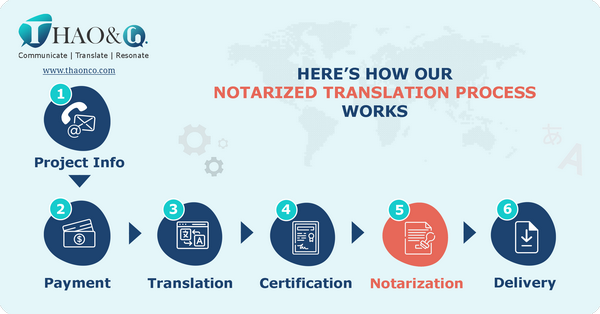
Sometimes, dealing with paperwork can be similar to finding a way out of a maze, and a low-quality translation can teleport you back to the starting point. Knowing your struggles, Thao & Co. Translation Company offers comprehensive certified translation services in which translation quality is our top priority.